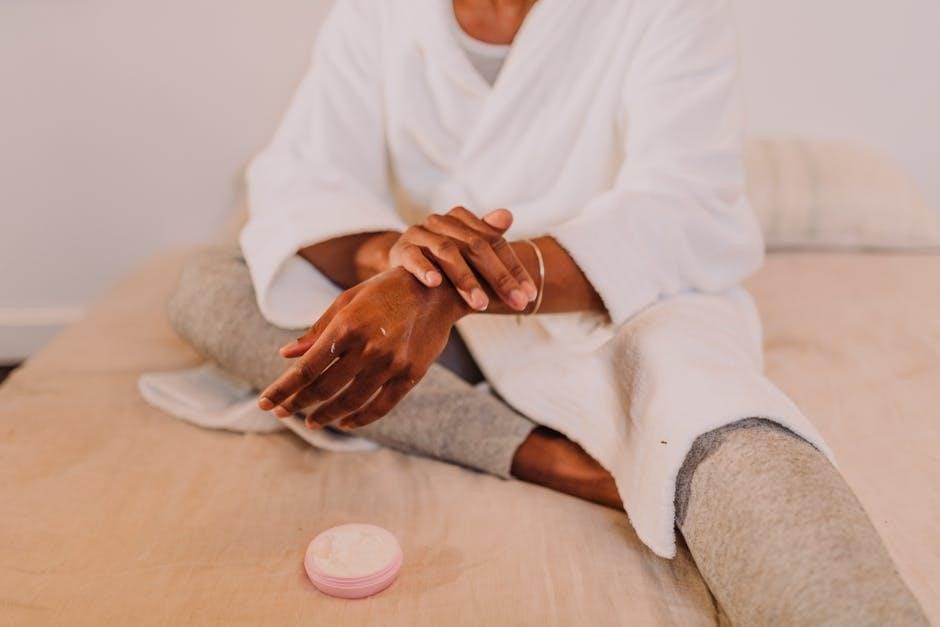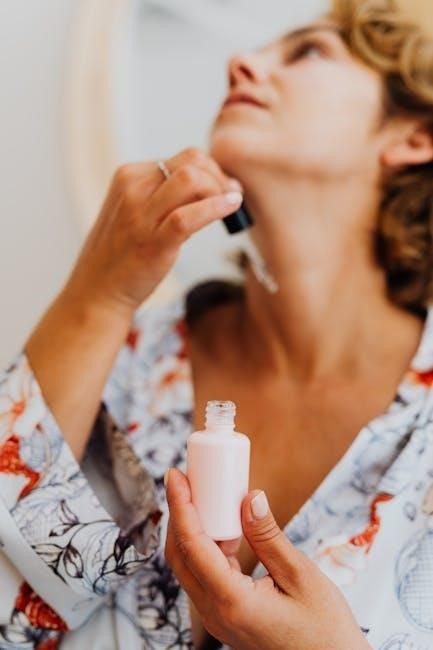Dorothea Orem, a pioneering nursing theorist, developed the Self-Care Deficit Theory, emphasizing patients’ ability to care for themselves with appropriate guidance, enhancing nursing practice.
1.1. Biography and Contributions to Nursing Theory
Dorothea Orem, a prominent nursing theorist, developed the Self-Care Deficit Theory between 1959 and 2001. Her work laid the foundation for understanding patients’ self-care abilities and nursing interventions. Orem’s theory is a general framework comprising three interrelated theories: self-care, self-care deficit, and nursing systems. She emphasized that individuals have the capacity to care for themselves, and nursing interventions should support this ability. Her contributions revolutionized nursing practice, education, and research, providing a structured approach to patient care. Orem’s work remains influential, particularly in chronic illness management and promoting patient autonomy, making her one of the most significant figures in nursing theory development.

1.2. Overview of the Self-Care Deficit Theory
The Self-Care Deficit Theory, developed by Dorothea Orem, focuses on addressing situations where individuals cannot meet their self-care needs due to health conditions or limitations. It bridges the gap between self-care and nursing systems, providing a framework for nurses to intervene effectively. The theory emphasizes identifying self-care deficits and tailoring nursing care to assist patients in achieving their health goals. It is widely applied in clinical, educational, and administrative settings, offering a structured approach to patient care. By addressing deficits, nurses empower patients to regain independence, making this theory a cornerstone in modern nursing practice and education.

Theory of Self-Care
Dorothea Orem’s Theory of Self-Care focuses on individuals’ ability to perform activities that maintain health and well-being, with nurses guiding patients to achieve these self-care actions.
2.1. Definition and Core Concepts
Dorothea Orem’s Theory of Self-Care defines self-care as deliberate actions individuals take to maintain health and well-being. Core concepts include self-care agency, the ability to perform care, and universal self-care needs, which are fundamental for all humans. These needs encompass physical, psychological, and social aspects. Orem emphasizes that self-care is an innate capacity, and nurses should support patients in identifying and addressing their specific requirements. This theory underscores the importance of promoting independence and personal responsibility in health management, aligning nursing care with individual patient capabilities and goals.
2.2. Universal Self-Care Needs
Dorothea Orem’s Self-Care Theory identifies universal self-care needs as essential requirements for maintaining health and well-being. These needs include activities that promote normal human functioning, such as consuming food and water, maintaining a balance of rest and activity, and practicing hygiene. They also encompass psychological needs, like seeking social interaction and expressing emotions. Universal self-care needs are inherent to all individuals and are necessary for survival and optimal health. While these needs are consistent across populations, the methods of addressing them may vary based on age, culture, and individual circumstances. Orem emphasizes that meeting these needs is fundamental to self-care agency and overall well-being.

Theory of Self-Care Deficit

Orem’s Self-Care Deficit Theory addresses situations where individuals cannot fulfill their self-care needs, requiring nurses to provide care and support to restore health and independence.
3.1. Definition and Importance
The Self-Care Deficit Theory, as defined by Dorothea Orem, identifies situations where individuals are unable to meet their own self-care needs due to health conditions or limitations. This theory is crucial in nursing practice as it provides a framework for understanding when and how nurses should intervene. By addressing self-care deficits, nurses can help patients achieve optimal health outcomes, promote independence, and enhance overall well-being. The theory emphasizes the nurse’s role in guiding and supporting patients to perform self-care activities, thereby improving the quality of care and patient satisfaction in various healthcare settings.
3.2. Identifying Self-Care Deficits
Identifying self-care deficits involves assessing a patient’s ability to meet their basic needs, such as nutrition, hygiene, and safety. Nurses use Orem’s framework to evaluate physical, emotional, and cognitive limitations that hinder self-care. This process includes observing daily activities, reviewing medical history, and patient interviews. Early detection of deficits allows targeted interventions, ensuring personalized care plans that address specific gaps. Accurate identification enhances the effectiveness of nursing support, promoting patient autonomy and improving health outcomes. This step is vital for delivering tailored care and empowering patients to manage their health effectively, aligning with Orem’s focus on patient-centered nursing practice.

Theory of Nursing Systems
Orem’s Theory of Nursing Systems focuses on designing care plans tailored to patients’ self-care needs, ensuring interventions support health and well-being through structured, individualized approaches.
4.1. Nursing Systems and Their Types
Orem’s Nursing Systems are categorized into three types: wholly compensatory, partially compensatory, and supportive-educative. Wholly compensatory systems provide total care when patients cannot self-care. Partially compensatory systems assist patients with specific deficits while fostering independence. Supportive-educative systems guide patients in developing self-care skills, promoting long-term health management. These systems are tailored to meet individual needs, ensuring effective care delivery and patient empowerment.
4.2. Role of Nurses in Nursing Systems
Nurses play a pivotal role in Orem’s Nursing Systems by assessing patients’ self-care abilities and designing care plans to address deficits. They provide education, support, and interventions tailored to individual needs. Nurses act as educators, guiding patients in self-care practices, and as advocates, ensuring patients’ autonomy and dignity; They adapt care strategies to fit the specific nursing system type, whether compensatory, partially compensatory, or supportive-educative. By fostering independence and confidence, nurses empower patients to manage their health effectively, aligning with Orem’s focus on promoting self-reliance and optimal well-being.

Application of Orem’s Theory in Nursing Practice
Orem’s theory is widely applied in clinical settings, education, and administration to address self-care deficits, enhance patient independence, and improve healthcare outcomes through tailored nursing interventions.
5.1. Clinical Applications
Orem’s Self-Care Deficit Theory is extensively applied in clinical settings to identify and address patients’ self-care deficits. Nurses use this framework to assess patients’ abilities to perform self-care activities and develop personalized care plans. The theory is particularly useful in managing chronic illnesses, where patients require ongoing self-care. It also guides post-surgical care, helping patients regain independence. By focusing on universal self-care needs, nurses can intervene effectively, ensuring patients and their families are engaged in care processes. This approach enhances health outcomes, making it a valuable tool in diverse clinical scenarios, from rehabilitation to palliative care.
5.2. Educational and Administrative Applications
Orem’s Self-Care Deficit Theory is widely applied in nursing education and administration. It serves as a framework for teaching students to assess and address self-care deficits in patients. Administratively, the theory informs policy development, resource allocation, and care delivery systems. Nursing educators use it to design curricula that emphasize patient-centered care and self-care promotion. Additionally, it guides the training of nursing staff to identify and support patients’ self-care needs effectively. This theory also supports the development of healthcare policies that prioritize patient independence and wellness, making it a valuable tool in both educational and administrative nursing contexts.
Dorothea Orem’s Self-Care Deficit Theory remains a cornerstone of nursing practice, emphasizing self-care and nursing systems to promote patient independence and holistic care.
6.1. Summary of Key Concepts
Dorothea Orem’s Self-Care Deficit Theory is a comprehensive framework emphasizing patients’ ability to perform self-care activities essential for maintaining health and well-being. The theory comprises three interconnected components: self-care, self-care deficit, and nursing systems. Self-care involves deliberate actions to meet universal and developmental needs, while self-care deficits arise when individuals cannot fulfill these needs independently. Nursing systems provide the structure for nurses to assist patients in overcoming deficits, promoting independence, and enhancing health outcomes. This theory underscores the nurse’s role in identifying deficits and implementing tailored interventions, making it a foundational guide for nursing practice across diverse settings and patient populations.
6.2. Impact on Modern Nursing Practice
Dorothea Orem’s Self-Care Deficit Theory has significantly influenced modern nursing practice by emphasizing patient-centered care and empowerment. Nurses use the theory to identify self-care deficits and develop personalized care plans, fostering independence and health promotion. Its focus on universal self-care needs aligns with contemporary healthcare priorities, such as chronic disease management and preventive care. The theory also supports educational and administrative nursing roles, enabling the integration of evidence-based practices. By addressing individualized patient needs, Orem’s framework enhances patient outcomes, making it a cornerstone of nursing practice in diverse clinical, educational, and community settings, ensuring its relevance in today’s dynamic healthcare landscape.

